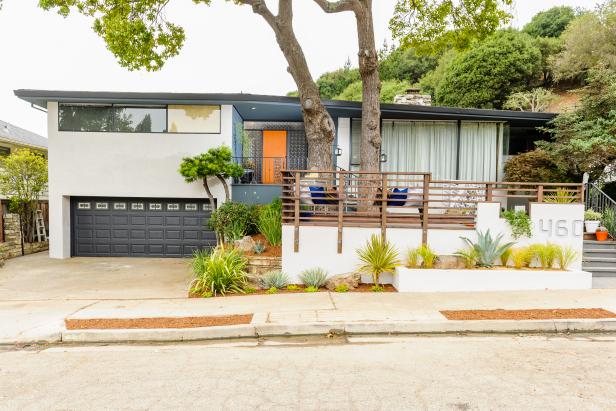Short Sale Rules: What You Need to Know
A short sale occurs when a property is sold for less than what is owed on the mortgage with the lender's approval. Learn the advantages and disadvantages of this type of transaction for the seller and the buyer.

The short in a short sale isn’t about how long it takes to complete the sale, rather it refers to a purchase price that is less than what the homeowner owes to their mortgage lender. In this article, we'll look at the typical short sale process, the advantages and disadvantages to this type of home sale, how to get the seller's lender to agree to a sale and how a buyer can find properties.

Why a Short Sale?
In a seller's ideal home transaction, the sale price will pay off the existing mortgage and the seller may even make a profit. But sometimes the homeowner owes more on the property than what the market will pay, commonly called being underwater. A homeowner in this situation must seek permission from the lender to sell the house for less than what is owed — a short sale.
A short sale is often an attempt by both the seller and his or her lender to avoid foreclosure because of a homeowner's financial difficulty that has been unresolved by other means. Short sale transactions can also be initiated by an eager buyer who makes a below-mortgage offer to a homeowner in trouble.
The Short Sale Process
Whichever way it begins, a short sale generally has four minimum requirements to proceed:
- A qualified seller: A homeowner must have an eligible hardship.
- A qualified buyer: The buyer must be unrelated to and unaffiliated with the seller (an arm's length buyer) and must have financing in place.
- A reasonable offer: The buyer's offer must be in line with the fair market value of the property.
- An agreeable lender(s): Any entity with a title interest to the property must agree to the sale.
That last requirement is the most important. The buyer and seller can be on the same page but in this type of real estate transaction, the seller's lender is the boss. Often, lenders require that other loss-mitigation options — financial industry-speak for solutions to handling homeowner debt — be entertained and rejected for a good reason before they will consider a short sale.
The short sale process goes something like this, although the first four steps can occur in a different order:
- The homeowner confirms he or she is eligible for a short sale with the lender by answering financial questions and submitting required documentation, including a hardship letter explaining in detail why a short sale is required.
- The lender pays for an appraisal to establish fair market value. The valuation letter it sends to the seller has a recommended list price with an expiration date.
- The homeowner's real estate agent or broker lists the property for sale. Most lenders require the seller to get a qualified representative, even if the owner gets an offer directly.
- Offers are made on the property and the homeowner's real estate agent submits the highest complete offer to the lender. This offer includes the buyer's qualification for financing, an earnest money deposit, the purchase contract and the broker's description of the local market.
- The lender approves the offer or submits a counteroffer.
- Once an agreement is reached, the buyer and seller must complete the sale under the terms laid out by the lender.
- At closing, the seller is released from some or all of the original loan responsibilities.
Many lenders don't want to entertain a short sale without a buyer's offer on the table. But if the offer on the home is the first time the lender has heard the homeowner is in trouble, it will require proof of eligibility. Also, if there are other mortgages or liens on the property, the lender will want secondary lien releases, which we will discuss in more detail later.
What Foreclosure Means and How to Stop It From Happening
Learn about the various steps in the foreclosure process and ways you can avoid losing your home.
Advantages of a Short Sale
A short sale can be a compromise that benefits all parties. Specific advantages include:
For the Lender
- A short sale saves the time and expense of foreclosure proceedings.
- The lender avoids having to sell the property itself as well as risking further concessions on the home price that a foreclosure auction or sale post-auction may entail.
- It makes the lender look good to negotiate with a homeowner on the debt instead of foreclosing.
For the Seller
- The seller avoids foreclosure and is released from some or all of the mortgage obligation with the lender.
- The seller can get financing approval on another home more quickly after a short sale than foreclosure, and the credit rating recovery is faster according to mortgage lender Quicken Loans.
- The seller can stay in the home until the sale is completed.
- Sometimes a payment to cover relocation expenses is offered as part of the lender's closing package.
- Closing costs and broker's fees are often paid by the lender.
For the Buyer
- The home price could be below market value.
- The house is often in better condition than one purchased at a foreclosure auction or after.
- Standard inspections and title searches with due-diligence contingency periods are allowed.
- Closing costs and broker's fees are often paid by another party.
Disadvantages of a Short Sale
A short sale comes with quite a few catches. There are more parties involved than a typical sale making the process complicated and often lengthy. In a traditional home sale, price negotiations happen between the buyer and seller (or their representatives), not the seller's bank. In a short sale, the seller's lender isn't going to take the word of the seller or buyer on what the property is worth. It will order an appraisal to determine fair market value and will actively try to negotiate the sale price to minimize its losses. Also, most loans are managed by a servicing company entirely separate from the mortgage lender or investor (the entity that owns the loan). The servicing company is the one running negotiations from the bank side, and that company in turn must go to the lender or investor for its agreement to any short sale. According to major mortgage company, Freddie Mac in its FAQ on Buying a Short Sale Property, mortgage insurance on the property (a policy protecting the lender from a homeowner's default) could also impact the lender's agreeableness to the sale.
If there are multiple mortgages or liens on the property (e.g., home equity loans and tax liens), every single lienholder will be a party to negotiations because its permission will be needed for the sale, says Freddie Mac. The primary lender is entitled to be paid first, but junior lienholders would like some of their debt paid too and will negotiate for a portion of the sale price. If the primary lender is unwilling to agree to an acceptable portion being paid on junior liens, these lienholders are incentivized to refuse the sale and allow a foreclosure to proceed.
From start to finish, there are potential financing headaches for a buyer that could affect all parties. The buyer's pre-approval for financing can expire while everyone is waiting to hear from the seller's lender. If property condition is a big issue, the buyer's lender could balk. It can be challenging to marry the typical timeline for closing stipulated by the buyer's bank with the short period required by the seller's bank.
Additional disadvantages include:
For the Lender
- The bank may be able to get more out of the seller through loan mitigation or from a buyer at a foreclosure auction or after.
- Incomplete paperwork from homeowners and inexperienced realtors can create headaches and waste time.
For the Seller
- You are losing your house and possibly equity.
- You might not have the entire debt eradicated and could be responsible for the difference between what you owe and the sale price, called a deficiency judgment. If the difference is forgiven, you could be taxed on it.
- It is a significant credit hit. On a credit report, a short sale may be indistinguishable from foreclosure to the next lender, according to major consumer credit reporting agency Equifax.
- Any relocation payment may also be taxed.
For the Buyer
- The advertised price could bear no resemblance to the final purchase price. Lenders may put a low initial listing price to get bites, explains Freddie Mac. If housing prices are strong, banks will hold the line for more money. Closing costs may end up your responsibility.
- The home is sold as-is, and there is a greater likelihood it has deferred maintenance if the owner is in financial difficulty. Price concessions that sellers often make to cover repair costs are generally not on the table.
The bottom line for the seller
The short sale is often preferable to a foreclosure, but it is not a resolution to all a homeowner's financial woes. Aside from potential tax liability and credit implications, if the homeowner is expected to pay the difference between the sale price and the mortgage, that can compound the financial difficulty. To this end, the Consumer Financial Protection Bureau recommends asking the lender for a waiver of deficiency in writing. Depending on the hardship, there may be an alternative to the short sale that puts the homeowner in a better financial position. HUD-approved financial counselors are an incredibly useful resource, helping homeowners in trouble with free and objective advice.
The bottom line for the buyer
Though the short sale holds a few advantages for a buyer, none are unique to a short sale over a traditional home purchase. Since short sales are a last-ditch effort to avoid foreclosure for both the seller and his or her lender it will come to fruition only if those two parties have established that the short sale is the better alternative. This amounts to a dozen ways the deal can fall through that have nothing to do with the buyer, among them:
- The lender may reject the seller's qualifications for the sale.
- The lender may want the seller to pay the difference between what is owed on the mortgage and the purchase price, and the seller may be unable or unwilling to pay.
- A foreclosure deadline can interrupt a pending sale, as can a seller filing for bankruptcy.
- The seller could turn things around financially and back out of the sale.
Pros + Cons of Buying a Home in Foreclosure
Purchasing a foreclosed home can mean getting a bargain, but there are potential pitfalls too.
How to Get a Lender to Agree to a Short Sale
Short sale transactions are completed every day, but any day's completed transactions often started months ago. Both the buyer and the seller have methods for expediting the process and increasing the likelihood that the sale will go through. First and foremost, both parties should enlist the help of real estate brokers or agents with experience in short sales. These agents know how to find qualified properties and qualified buyers, fill out paperwork properly, liaise with mortgage companies, finesse secondary lienholders if needed, and generally stay on top of the transaction. Other ways to ensure the deal gets done include:
The Buyer
- Have all financing in place before making an offer and ensure it stays in place through delays.
- Submit a reasonable offer without contingencies (like the sale of your current residence) and a sizable earnest money deposit to show you are serious, says Freddie Mac. The lender knows how much the property is worth, irrespective of what the listing price says.
- Get authorization for your realtor to speak to the seller's lender and keep track of the process.
- Be swift and complete in responses to requests from the seller's realtor and lender. Understand that the process may be emotionally difficult for the seller and not his or her first preference. The quicker you respond to inquiries and the more reassuring you are about your end of the deal, the better.
The Seller
- Approach your lender as soon as you think you might need to request a short sale and be prepared for the lender's loss mitigation alternatives. For more stay-in-home strategies the lender might propose, see our foreclosure guide.
- Make sure your short sale application is impeccably thorough. The lender will want a bunch of information and supporting documentation. The lender will not be enthusiastic if:
- You are claiming financial destitution and still making big purchases.
- You are financially secure and can afford your mortgage payments or have enough assets to pay the difference between what you owe and what you can get in a sale.
- Your financial difficulties predate your mortgage and were undisclosed to the lender.
- You are trying to sell to relatives or friends. People you know are generally not eligible to purchase a short sale.
- Authorize your realtor to negotiate directly with the lender and stay on top of their communications.
- Make sure the buyer's offer is presented in the best light. If the buyer is a first-time homebuyer and requesting any closing cost credits, tell the lender; lenders are more likely to agree to concessions for first-time buyers than for investors.
How to Find a Short Sale Property
Short sale properties are found on the MLS and online real estate marketplaces and may be simply designated pre-foreclosure in listings. The lender may or may not be involved in the sale when the property is initially listed.
- When the bank is already on board with a short sale, it may be more helpfully labeled as short sale or pre-approved by bank. These properties could be a surer bet since the seller has already qualified, according to Freddie Mac.
- Properties labeled subject to bank approval or third-party review required are being listed for less than what is owed on the mortgage, but before permission from the bank was granted. So, the price, and indeed the whole transaction, is theoretical because the seller may not qualify.
If the property is listed before default and lender involvement, you may never know the homeowner is in trouble by a real estate listing. Liens on a property are generally recorded with the county clerk, explains real estate marketplace Zillow, and this check is useful for uncovering not just the original mortgage, but secondary mortgages, tax defaults and judgments against the property. Your real estate agent can find recent data on the MLS too.
Check your state laws covering the foreclosure notification process to find out exactly where to look for unlisted properties that may be candidates for short sales. Once a foreclosure has been initiated by the bank, it is a matter of public record — filed with your county courthouse and often published in the local newspaper. At this point, a home may be listed as a pre-foreclosure property with a price next to it on online real estate marketplaces, despite the fact that it isn't for sale at all and the price is an estimate based on area sales data. From the perspective of an initiate buyer to the foreclosure market, this can be confusing. From the homeowner's perspective, pre-foreclosure amounts to a very stressful period where he or she may be deluged with offers to buy a home that the owner is still hoping to find a way to keep.

.-Battle-on-the-Beach-courtesy-of-HGTV.-.jpg.rend.hgtvcom.196.196.suffix/1714761529029.jpeg)





































